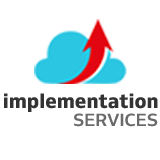The construction industry has always been an integral part of economic growth and urban development. Over the years, this sector has witnessed significant transformations driven by technological advancements, changing consumer demands, sustainability concerns, and innovative construction methods. As we move further, the construction industry continues to evolve, shaping the built environment in novel ways. This article explores the current trends, future Aspects, types of construction, challenges, and the role of ERP in construction management.
Current Trends in the Construction Industry
- Digitalization and Building Information Modeling (BIM): Adopting digital tools and BIM has revolutionized construction. BIM allows for better collaboration, visualization, and simulation of projects, reducing errors and improving project efficiency.
- Sustainability and Green Construction: With growing environmental awareness, there’s a strong emphasis on sustainable construction practices. It includes the use of eco-friendly materials, energy-efficient designs, and the incorporation of renewable energy sources.
- Prefabrication and Modular Construction: Prefabrication and modular construction methods are gaining popularity due to their efficiency, reduced waste, and quicker project completion. Off-site fabrication of components allows for enhanced quality control and reduced construction time on-site.
- 3D Printing and Robotics: The integration of 3D printing and robotics is transforming construction by enabling the creation of complex structures and reducing labor-intensive tasks. This technology enhances accuracy and speeds up construction processes.
The Future of the Construction Industry
The future of the construction industry holds exciting possibilities:
- Smart Construction: The concept of “smart cities” will drive the adoption of smart construction techniques, incorporating IoT (Internet of Things) devices for real-time monitoring and management of buildings.
- Advanced Materials: Developing new construction materials with enhanced durability, flexibility, and sustainability will revolutionize the industry.
- Renewable Energy Integration: Construction will increasingly incorporate renewable energy solutions, such as solar panels and energy-efficient building designs.
- Autonomous Construction Equipment: Automation and robotics will play a larger role in construction, reducing human involvement in hazardous tasks and improving precision.
Types of Construction
There are four main types of construction:
- Residential Construction: Involves building homes and housing developments.
- Commercial Construction: Focuses on creating non-residential structures like offices, retail spaces, and hospitality venues.
- Industrial Construction: Involves constructing facilities for manufacturing, production, and storage.
- Infrastructure Construction: Includes building vital public infrastructure like roads, bridges, dams, and utilities.
Biggest Needs in the Construction Industry
One of the biggest needs in the construction industry is skilled labor. There need to be more skilled workers, including engineers, project managers, and construction laborers. Addressing this skill gap through training programs and attracting young talent is crucial for the industry’s growth.
Changing Landscape in the Construction Industry
Several changes are shaping the construction industry:
- Technological Integration: From drones for surveying to AI-powered project management, technology is changing how construction projects are planned and executed.
- Collaborative Approaches: Collaborative project delivery methods like Integrated Project Delivery (IPD) and Public-Private Partnerships (PPPs) are gaining prominence, fostering better stakeholder teamwork.
- Safety Emphasis: There’s a heightened focus on worker safety, with companies leveraging technology to create safer working environments.
Methods of Construction
Five standard methods of construction include:
- Traditional Construction: The conventional method involves the on-site assembly of building components.
- Design-Build: A single entity manages both design and construction, streamlining communication.
- Construction Management: A professional manager coordinates various project elements, optimizing resources.
- Turnkey Construction: The contractor handles the entire project, delivering a “ready-to-use” facility.
- Fast-Track Construction: Overlapping design and construction phases to expedite project completion.
Challenges in the Construction industry
The construction industry faces various challenges, including:
- Cost Overruns and Delays: Unforeseen factors can lead to budget and schedule overruns.
- Regulatory Hurdles: Navigating complex regulations and obtaining permits can be time-consuming.
- Sustainability Pressures: Meeting green construction standards while maintaining cost-efficiency.
- Skilled Labor Shortage: A lack of skilled workers impacts project quality and timelines.
Role of ERP in Construction Management
ERP systems are integral to construction management by:
- Streamlining Operations: ERP software integrates various functions like project management, procurement, and financials, improving efficiency.
- Data Management: ERP centralizes project data, allowing real-time access to stakeholders and aiding informed decision-making.
- Cost Control: ERP systems monitor costs, budgets, and expenditures, preventing cost overruns.
- Resource Allocation: ERP optimizes resource allocation, ensuring the right materials and personnel are available at the right time.
Technological advancements, sustainable practices, and innovative methods guide the construction industry’s current trends and future aspects. The industry must address challenges like skilled labor shortages and regulatory complexities as it evolves. With the integration of technology, collaborative approaches, and strategic management through ERP systems, the construction industry is poised for transformation and growth in the years to come.

Vijay comes with a vast experience in ERP and enterprise solutions space with about 20 years of experience in various packaged application like Acumatica, SAP, Orion, Salesforce.com, SugarCRM and, SalesLogix.
















